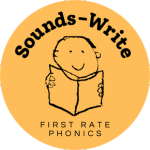When we visit schools, we are often asked how to stretch students who, because they have more prior knowledge or get more practice at home, seem to be ahead of their peers in terms of reading and spelling.
So, how do you support students who have stronger reading and/or spelling skills than their peers?
First of all, we always recommend that they stay in the phonics sessions together with their peers, and don’t skip it to do something else. This is because sometimes these students may have some prior knowledge. However, this doesn’t necessarily mean that they have a well-formed mental schema for how the English alphabet code system works, and sitting through and participating in the Sounds-Write session with their peers will help them develop that mental model. Whilst they might also have more sophisticated code knowledge than their peers, they might not know all the ways to represent all the sounds and the whole class session is a good way to fill those gaps.
Here are some specific strategies that you might find useful:
– At a word level, choose those students to come to the board for more complex words (e.g. it could be that you’re mostly using CV or CVC words for Unit 1 /ae/ First Spellings like ‘day’, cake’, rain’, but you can offer ‘strain’ (CCCVC) for a more capable student). Some will also manage to read and spell polysyllabic words far more quickly and they can be included in tasks where they continue the lesson independently.
– Setting high standards for all steps of the lesson (e.g. some students may be strong spellers but still need to work on their handwriting when spelling: ask them to focus on that!)
– Prompting students to build on from word-level tasks. For example, if most students are working on writing up their single words, some students can be asked to see how many affixes they can add to the words (e.g. ‘rain’ = rainED, rainING, rainS, rainY, rainBOW, rainDROP). Alternatively, you can ask students to make silly sentences with the words (This is a ‘follow-up’ lesson on the back page of your main script for Lesson 7).
– For dictation (Lesson 4a), some teachers have pre-recorded a sentence at the appropriate point of challenge on an iPad and students listen with headphones while the rest of the class complete the dictation the teacher is saying aloud.
– Lesson 7, 8 and 9 provide opportunities for students to work with more complex words or texts. They can be working on the same target sound as the rest of the class, but we can provide a list of words for them to continue that have ‘more spellings’ of the sound and/or polysyllabic words with the target sound. For Lesson 9 (Seek the Sound), most students will be working with a decodable passage. Some students can ‘seek the sound’ and identify the spellings from any text or book they can accurately decode (e.g. an encyclopaedia, their favourite song lyrics, video game hacks, a poem, the class novel). Check out the ‘Follow-up lessons’ on the back pages of these scripts.


